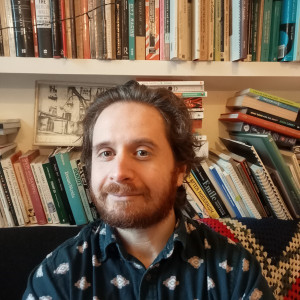The University of Durham is remarkable, both for its structure and how it came to be. Unlike Scottish universities with English course offerings, Durham did not explode into being through some Enlightenment event. This article details Durham University's humble genesis and tracks its growth into the acclaimed institution it is today. You'll then discover how you, too, can be Dunelmensis - of Dunham.
Durham English Literature at a Glance
- 5 undergraduate programmes to choose from
- Most programmes take 3 years to complete but offer an additional study year abroad
- A-Levels required for entry: A*AA; AAB contextual offer
- Tuition: projected slightly higher than £9 535 (2026 entry fees not set); financial aid available

What Makes the University of Durham Special?
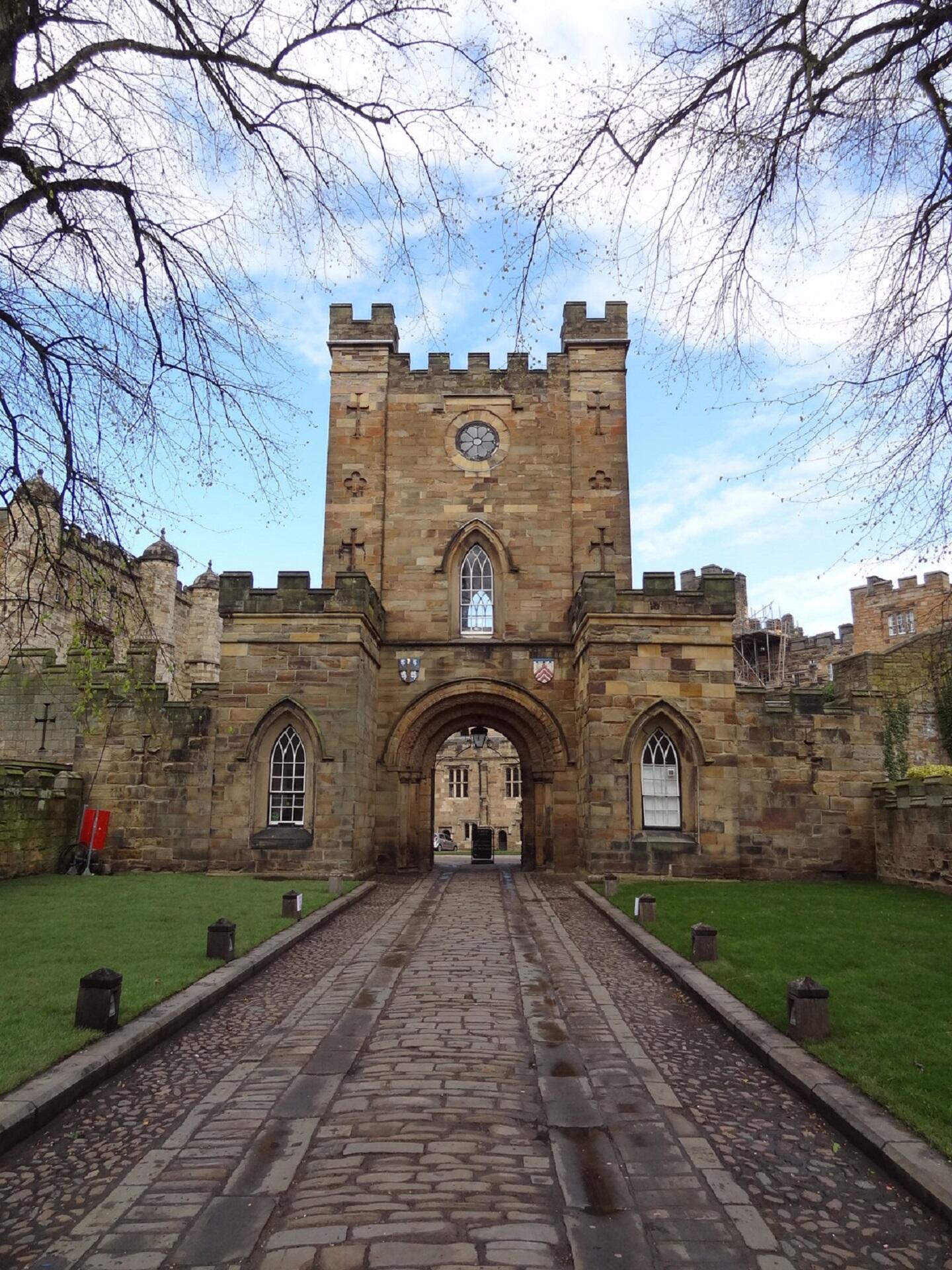
The University of Durham had to fight Oxford for legitimacy. It had long been a centre of learning for Benedictine monks, since the late 13th Century, in fact. Their small land parcel became Durham College in 1381, when Bishop Thomas Hatfield endowed it financially. The religious order was made to surrender its holding upon the Reformation, in 1545.
But the die was already cast. The monks' strong teaching ethic compelled them to search for another venue they could use for that purpose.
They managed to establish themselves again under a letters patent from King Henry VIII, which Oliver Cromwell later reinforced. That licence stopped short of granting the school permission to issue degrees.
Oxford and Cambridge opposed Durham's request for permission to issue formal education credentials.
The stalemate lasted nearly 200 years, until Parliament granted the religious order the right to their own university. King William IV gave royal assent in 1837, making the University of Durham England's third-oldest university and the first to receive such a charter.
Durham University Fast Facts
This university operates as a collegiate system. However, its colleges and academic departments have separate roles. Each department addresses a specific discipline; the departments are organised into three faculties. By contrast, the colleges cater to domestic arrangements and student welfare, leaving the teaching to the departments.
Note that Oxford and Cambridge also operate under a collegiate system, but it works differently than at Durham. For instance, Oxbridge's English Literature studies take place across several colleges, depending on your chosen degree plan. Now, let's discover how literature studies happen at Durham University.
About the Durham English Department
The Department for English Studies falls under the Arts and Humanities faculty. It specialises in teaching as well as research on British texts and written works from across the English-speaking world. As an undergraduate, you'll focus on growing your knowledge of genres, forms, eras and cultures of literature. Later, you may choose to specialise in a particular period or writings from a specific region.
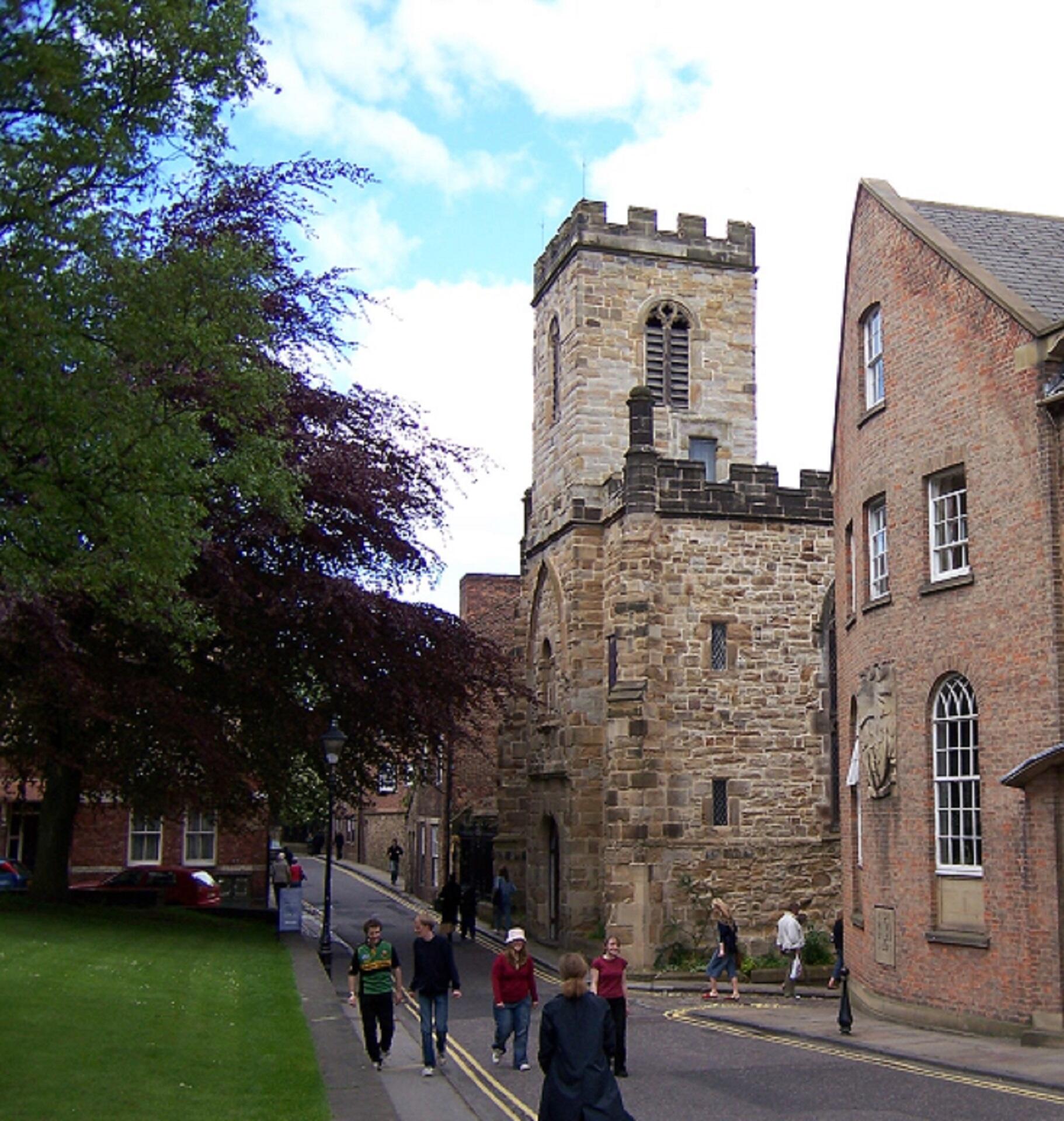
The bulk of your learning will happen through lectures. However, Durham's English Department schedules many extracurricular events: seminars, workshops, and tutorials. The department's academic staff welcomes students to one-on-one sessions, as need be.
Around 700 undergraduates
About 60 postgraduates
60 PhD researchers
80 academic, administrative and postdoctoral staff
Teachers and learners mingle across three buildings, with classes held in Old Elvet. These rooms are on the other side of campus from the Bill Bryson library. Students don't mind making the trek, as the campus is compact, well laid out and pedestrian-friendly.
Famous Durham English Department Alumni
Admittedly, the list of renowned Durham graduates is longer for the science faculties than for humanities. Still, many writers, actors and academics draw on their Durham experience to shape their art.
This writer took his pen name from two Durham University colleges: Bede and Cuthbert. He came from a well-to-do family, with a brother who was also a writer. He intended to take orders as soon as he earned his licentiateship of theology, but was a bit too young for that commitment. He eventually became ordained but continued his writing career under his pen name.
Minette graduated from Durham with a degree in French and promptly turned her attention to writing (in English). Her first job was as a sub-editor at TI Media, but her passion was writing stories. She published novellas and short stories under a closely guarded pseudonym. Today, we all know Minette, only in part for the TV adaptations of her work.
Other notable Durham alumni include comedian/author Tim FitzHigham (St Chad's College), who holds records for paddling a paper boat the longest distance and crossing the Thames in a tub. Comedian Ed Gamble (Hatfield College) entertains and informs us with this popular podcasts. And how could we forget Nick Mohammed (St Aidan's), who gave us Ted Lasso?
Durham Uni English Lit Programmes
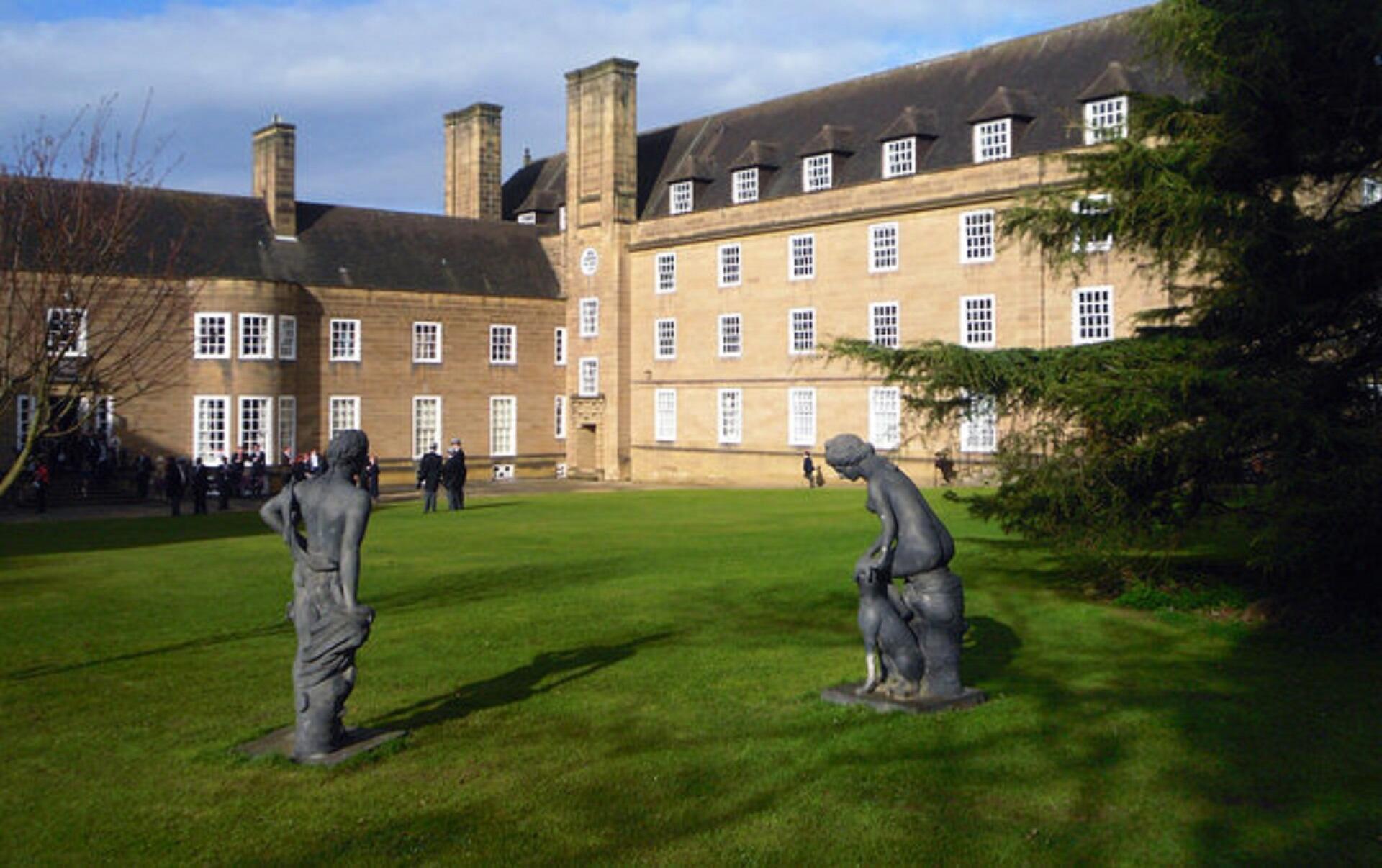
Admiring past Durham graduates is all fine and well, but you're likely not eyeing this school as a vehicle to fame. So, we now get to the heart of the matter: what does this university have for you?
This school insists that prior disadvantage should be no bar to higher education. So, Durham's English department offers a foundation year with English studies as a pathway into literature studies. To qualify, applicants must have at least a 4 on their GCSE English. This school accepts applications from mature students - more than three years out of school, as well as current students.
Durham's English department typically receives 10 applications for every place. Getting your application in before the deadline and providing supporting documentation boosts your chances of acceptance.
Beyond that foundation year, Durham uni English Lit programmes are curiously broad.
Liberal Arts
- for applicants wishing to explore a range of subjects c
- hoose the study modules that interest you
- module selections from social sciences and arts-humanities
- conduct research or write a dissertation
Social Sciences
- 17 study modules to choose from
- research-oriented learning programme
- must be independent thinker
- assessment by dissertation
For students who prefer a structured curriculum, Durham offers two dual-subject programmes.
English Literature and History
- a cross-disciplinary course
- 'great tradition' literature studies
- study history from the end of the Roman Empire to today
- optional year abroad or placement year
English Lit and Philosophy
- focus on litarary and philosophical texts
- equal parts philosophy and literature studies
- many electives to choose from
- assessment by dissertation
If you're still unsure which direction you'd like your studies to take, apply for the Durham English Department standard offering: English Literature. This single degree programme takes three years to complete and offers a placement year or an additional year of study abroad.
This course's single focus gives you the space to develop your critical thinking and analytical skills while studying subjects that interest you. It draws on the research conducted in-house to broaden your understanding of your subject. And, like all the best universities for literature studies, you'll have many chances to participate in extracurricular activities and societies.
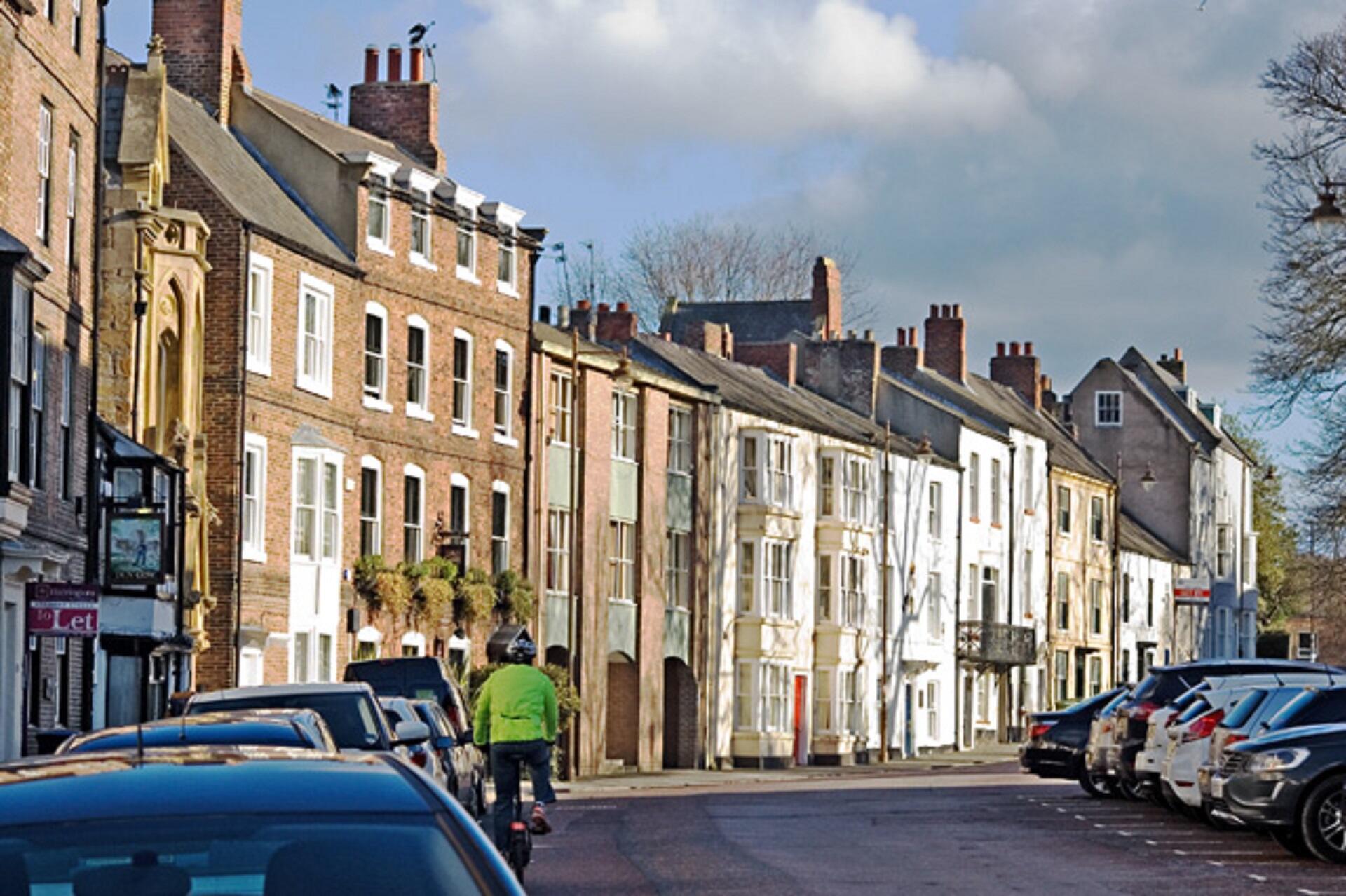
Durham Literature Programmes Admissions Requirements
As noted in this article's introduction, A*AA - AAB is the A-Level grade range for admission into these programmes. This table lays out the specifics for each course, along with other requirements.
| 🏫Study programme | 📚A-Level requirements | 💻BTEC requirements | 🌐Requirements for international students |
|---|---|---|---|
| English Literature | A level offer – A*AA Contextual offer – AAB | Level 3 National Extended Diploma/OCR Cambridge Technical Extended Diploma – D*DD | IB Diploma score – 38 with 666 in higher level subjects, including English Literature or English Literature/Language. |
| Liberal Arts | A level offer – A*AA Contextual offer – AAB At least one A must be in the desired study subject. | BTEC Level 3 National Extended Diploma/OCR Cambridge Technical Extended Diploma – D*DD Plus subject-specific A-Level equivalent. | IB Diploma score – 38 with 666 in higher level subjects. Plus subject-specific requirements as |
| English Literature with History | A level offer – A*AA Plus A in History, A in Literature, or Lit. and Language. Contextual offer: AAB B in History and an A in English Literature or combined English Literature and Language. | BTEC Level 3 National Extended Diploma/OCR Cambridge Technical Extended Diploma – D*DD Same course requirements as A-Levels | IB Diploma score – 38 with 666 in higher level Same course requirements as A-Levels |
| English Literature and Philosophy | A level offer – A*AA Contextual offer – AAB Plus A in English Literature or English Literature and Language. | Level 3 National Extended Diploma/OCR Cambridge Technical Extended Diploma – D*DD Required: English language or literature | IB Diploma score – 38 with 666 in higher level subjects English language and/or literature required. |
| Combined Honours in Social Sciences | A level offer – A*AA Contextual offer – AAB A in subject specific selection required. | Level 3 National Extended Diploma/OCR Cambridge Technical Extended Diploma – D*DD Same subject-specific requirements as A-Level | IB Diploma score – 38 with 666 in higher level subjects. Subject-specific requirement. |
Much like the Manchester University English literature courses, Durham's admissions criteria are as generous as possible. Furthermore, Durham's admissions office offers support to help applicants navigate the process, and feel welcome once they arrive.
Applying for Your English Literature Degree, Durham
Whether you're applying to study literature at UCL, KCL or any other university, the sooner you begin your application process, the better your chances at landing a place in your desired programme.

Obviously, the same goes for your English Literature degree, Durham.
Registering with UCAS is your first step towards applying.
Create your UCAS account as soon as possible so you can explore English literature degree plans and the unis that offer them. Don't get lost in that journey, though! You should start compiling all the documentation you'll need for your application:
- application forms
- academic transcripts
- letters of recommendation
- proof of financial support
You'll need to write a personal statement that expresses your desire to study English literature. On this task, it's best not to procrastinate! Remember that entry to Durham is competitive, particularly for certain colleges. Don't let yourself be shut out because of a poorly written, last-minute statement you dashed off in a panic!
Summarise with AI:












